Congratulations to the 2019 recipients of the College’s most prestigious awards.
The winners will be honored during ACEP19 in Denver.
Explore This Issue
ACEP Now: Vol 38 – No 10 – October 2019John G. Wiegenstein Leadership Award
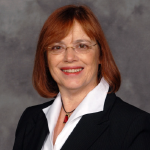 Sandra M. Schneider, MD, FACEP
Sandra M. Schneider, MD, FACEP
Dr. Schneider is currently the associate executive director for clinical affairs at ACEP and adjunct professor of emergency medicine at the University of Pittsburgh. She remains clinically active as a part-time attending with Integrative Emergency Services at John Peter Smith Hospital in Fort Worth, Texas.
Dr. Schneider is a graduate of the University of Pittsburgh School of Medicine and board-certified in internal medicine and emergency medicine. After residency, she served in the U.S. Public Health Service in Hazard, Kentucky. She then returned to the faculty at the University of Pittsburgh and was the medical director for the emergency department at Montefiore (University) Hospital. She was then recruited to be the founding chair of the department of emergency medicine and professor of emergency medicine at the University of Rochester in New York. Just prior to moving to Texas, she was the senior research director and professor of emergency medicine at the North Shore LIJ Department of Emergency Medicine.
Dr. Schneider is a past President of ACEP, the Society for Academic Emergency Medicine, and the Association of Academic Chairs of Emergency Medicine. She is also a past chair of the Residency Review Committee for Emergency Medicine and the Emergency Medicine Foundation. Her husband owns an ice cream store and her adult daughter is a crime analyst in Burleson, Texas.
John A. Rupke Legacy Award
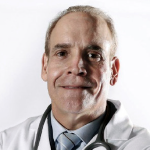 Juan A. González-Sánchez, MD, FACEP
Juan A. González-Sánchez, MD, FACEP
Dr. González-Sánchez was born in the Presbyterian Hospital in Santurce, Puerto Rico. He completed his pre-college years at the public school Luis Hernaiz Verone, graduating in 1978 with high honors. He was accepted at the University of Puerto Rico, Río Piedras campus, in 1978 and graduated magna cum laude in 1982 with a bachelor’s degree in biology and a minor in physical education. In 1982, he was accepted at the School of Medicine of the University of Puerto Rico, from which he graduated in 1986. He then started a residency in emergency medicine there in 1986, from which he graduated in 1989. Immediately after graduation, he started to work as assistant medical director at the Puerto Rico Medical Center Emergency Room and as ad honorem attending of the emergency medicine residency program. Later, in 1991, a scholarship was granted to him by ACEP and the Emergency Medicine Foundation to attend the University of Texas Southwestern Medical Center for a teaching fellowship which he completed in 1992. Also in 1991, he was appointed program director and chief of the section of the recently created University of Puerto Rico Emergency Medicine Section and Residency Program. From 1991 to 1993, Dr. González-Sánchez worked as the only full-time attending of the emergency medicine residency program, and together with a group of residents, he tried to get the residency program out of a probation status it had been in since 1990.
Unfortunately, the program was not accredited and closed in 1993. One year later, with the support of the School of Medicine of the University of Puerto Rico, the Department of Health, and the leadership of Dr. González-Sánchez, the emergency medicine program was reinstated and has been open for the last 25 years. This program has graduated a total of 220 residents and has been the source of more than 90 percent of emergency medicine specialists who work on the island.
In 2002, under the leadership of Dr. González-Sánchez, the emergency medicine section of the department of surgery became the clinical department of emergency medicine at the School of Medicine of the University of Puerto Rico. Following this, he was appointed department chair and residency program director. Under his leadership and with the support of both the faculty and residents, the department created the first emergency medicine elective for second-, third-, and fourth-year medical students in which more than 3,000 students have participated. It has off-service rotations for other residency programs in which more than 2,500 residents have participated and rotations for international emergency medicine residents from the Dominican Republic. The department had served as a role model for residency programs in the Dominican Republic and gives full support for new ones to come under the leadership of Dr. González-Sánchez. Also since 2002, under the leadership of Dr. González-Sánchez, the University of Puerto Rico Emergency Department has been the sponsor of the annual “Simposio Puertorriqueño de Medicina de Emergencia” meeting with more than 1,600 participants. This program has been one of the main sources of bilingual emergency medicine physicians for the mainland.
Colin C. Rorrie, Jr. Award for Excellence in Health Policy
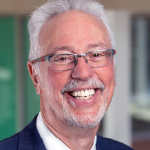 Peter J. Jacoby, MD, FACEP
Peter J. Jacoby, MD, FACEP
Dr. Jacoby is the chairman of emergency medicine at Saint Mary’s Hospital in Waterbury, Connecticut. He is a past Council Speaker for ACEP and is an assistant professor in the department of traumatology and emergency medicine at the University of Connecticut School of Medicine and at the department of medical sciences of the Frank H. Netter MD School of Medicine at Quinnipiac University.
Dr. Jacoby is a past winner of the Phil Stent Award given annually to the Emergency Physician of the Year in Connecticut and the 2005 recipient of the ACEP Council Meritorious Service Award. He was named one of ACEP’s “Heroes of Emergency Medicine” in celebration of its 40th year, as well as a “Healthcare Hero” by the Connecticut Hospital Association.
Dr. Jacoby is a member of the board of directors of the Saint Mary’s Hospital Foundation, a member of the board of directors of Wellmore, chairman of the board of directors of the National Emergency Medicine Political Action Committee (NEMPAC), and chairman of the Palace Theater in Waterbury. His hobbies include travel, photography, and cooking. He is married to Kristen Jacoby, and together, they reside in Woodbury, Connecticut.
Judith E. Tintinalli Award for Outstanding Contribution in Education
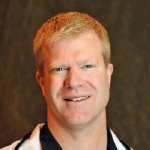 William “Ken” Milne, MD
William “Ken” Milne, MD
Dr. Milne is the chief of staff at South Huron Hospital Association in Exeter, Ontario, Canada. He has been doing research for more than 30 years, publishing on a variety of topics. He is passionate about skepticism and critical thinking. He is the creator of the knowledge translation project The Skeptics’ Guide to Emergency Medicine (www.TheSGEM.com). Dr. Milne is also part of the faculty for Emergency Medicine and Acute Care Course series and EMRAP. He is married to Barb and has three amazing children.
James D. Mills Outstanding Contribution to Emergency Medicine Award
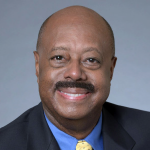 Ramon W. Johnson, MD, FACEP
Ramon W. Johnson, MD, FACEP
Dr. Johnson is board-certified in emergency medicine and pediatrics and currently practices emergency medicine at a level 2 trauma center in Mission Viejo, California. He has been in practice for 35 years and has been involved both at the state and national level in organized medicine throughout his career. Dr. Johnson is a past president of California ACEP and also served on the national Board of Directors and as Chair of the Board from 2010 to 2011. He has served as the College’s liaison to the Disaster and the Pediatric Emergency Medicine committees, as well as to the Disaster, Tactical, and Pediatric sections. Dr. Johnson has been an emergency medicine board examiner for almost two decades, and four years ago, he was elected to the Board of Directors of the American Board of Emergency Medicine, and just began his second term. He also serves as the liaison to the Pediatric Emergency Medicine sub-board.
At the state level, Dr. Johnson co-authored the legislation establishing the Emergency Medical Services for Children Technical Advisory Committee and has served on the committee for the past 27 years. This year, the committee successfully passed state regulations to improve the care of children throughout the state. He also served on a task force for the California Department of Health Care Services that wrote the state’s first strategic plan for disaster preparedness and response, is currently on the state’s Joint Advisory Committee on Terrorism and has been actively involved in the oversight of the state’s hospital and public health preparedness grants for disaster planning. Dr. Johnson served two eight-year terms on the state’s Commission on Emergency Medical Services and chaired a subcommittee creating guidelines for hospitals and local EMS agencies on disaster preparedness for children. He has been involved as a consultant on numerous state grants and private projects, specializing in pediatric care, trauma program development, and disaster preparedness, as well as ED efficiency, patient safety initiatives, and physician engagement. He has also published and lectured on the national and international level on topics including pediatrics, disaster preparedness, patient safety, and health policy.
Dr. Johnson completed his health care MBA in Paris, France, five years ago and completed a dissertation that evaluated the readiness of hospitals in Europe to care for children. He is currently pursuing his interests in health plan management, serving on the board of California Health & Wellness (a Centene health insurance subsidiary) as well as biotech innovation, and serving as chief medical officer for Harbor MedTech (a wound care product company). Dr. Johnson loves international travel and teaching about wine appreciation and physician leadership development.
Diane K. Bollman Chapter Advocate Award
 Elena Lopez-Gusman, JD
Elena Lopez-Gusman, JD
Ms. Lopez-Gusman is the executive director of California ACEP and has been with the organization since 2007. She directs the chapter’s advocacy efforts including multiple litigation efforts, regulatory advocacy, and legislative advocacy, also working as a registered lobbyist. Additionally, she oversees the chapter’s two sponsored political action committees and their strategic efforts to elect and reelect champions of emergency medicine.
She brings more than 20 years of legislative, political, and policy experience to her advocacy on behalf of emergency physicians and their patients. She spent 10 years working in the California State Legislature for Assembly Speaker Antonio Villaraigosa and Sen. Joe Dunn.
She worked on a variety of legislative policy areas and developed an expertise in immigration and health care issues. She first began her collaboration with California ACEP when staffing legislation to ensure that California’s tobacco litigation settlement funds would be spent on health care.
Ms. Lopez-Gusman has extensive campaign experience dating back to 1998 when she served as volunteer coordinator for the Assembly Democratic Campaign. She subsequently worked on Measure H in Orange County to dedicate local tobacco settlement funds to health care; Proposition 16 of 2000—the Veterans Home Bond Act; Proposition 61 of 2004—the Children’s Hospital Bond Act; Proposition 67 of 2007—the Emergency and Medical Services Funding; and the state controller’s race in 2006.
Prior to her service in the legislature, she was a legislative staff attorney for the Mexican American Legal Defense and Education Fund and supervised its Sacramento office.
Ms. Lopez-Gusman earned her BA in sociology and her JD from the University of California, Davis, and is a member in good standing of the State Bar of California and the American Association of Medical Society Executives.
Outstanding Contribution in Research Award
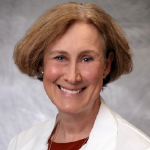 Rebecca M. Cunningham, MD, FACEP
Rebecca M. Cunningham, MD, FACEP
Dr. Cunningham is director of the CDC-funded University of Michigan Injury Prevention Center, interim vice president of research for the University of Michigan, professor in the University of Michigan’s department of emergency medicine, and professor in health behavior and health education at the University of Michigan School of Public Health in in Ann Arbor.
Dr. Cunningham has a distinguished career in researching injury prevention, particularly in youth and young adult populations. Her focus on brief interventions in the emergency room and health systems has included using technology to overcome barriers to reaching youth to prevent substance use and violent injury (SafERTeens intervention/National Institute on Alcohol Abuse and Alcoholism), and longitudinal studies of youth seeking ED care with assault injury (including firearm injury)/ National Institute on Drug Abuse. She is the principal investigator of the 2017 National Institute of Child Health and Human Development–funded Firearm-Safety Among Children and Teens Consortium (FACTS). This grant brings together firearm researchers across the country to build capacity in this field.
Outstanding Contribution in Research Award
 Gail D’Onofrio, MD, FACEP
Gail D’Onofrio, MD, FACEP
Dr. D’Onofrio is professor and chair of the department of emergency medicine at Yale University in New Haven, Connecticut, and physician-in-chief of emergency services at Yale New Haven Hospital. Boarded in emergency and addiction medicine, she is internationally known for her work in substance use disorders, women’s cardiovascular health, and mentoring physician scientists in developing independent research careers. For the past 25 years, she has developed and tested interventions for alcohol, opioids, and other substance use disorders, serving as principal investigator on several large National Institutes of Health, Substance Abuse and Mental Health Services Administration, and Centers for Disease Control and Prevention studies that have changed clinical practice.
Dr. D’Onofrio has a long track record of mentoring junior and senior faculty members both at Yale and throughout the United States in multiple specialties. She is the principal investigator of a National Institute on Drug Abuse–funded K12 establishing the Yale Drug use, Addiction and HIV Research Scholars (Yale-DAHRS) program, a three-year postdoctoral, interdisciplinary, mentored career development program with focused training in prevention and treatment of drug use, addiction, and HIV in general medical settings.
She has received multiple clinical, leadership, and mentorship awards including the Excellence in Mentoring award from the Association for Medical Education and Research in Substance Abuse (2008), Advancing Women in Emergency Medicine award (2016), and the Department of Emergency Medicine Advancement of Women Award (2018) from the Society of Academic Emergency Medicine. She is a founding Board member of Addiction Medicine, now recognized as a new subspecialty by the American Board of Medical Specialties. An advocate for individuals with opioid use disorder, she is one of the architects of Connecticut governor’s strategic plan to reduce opioid deaths, working with multiple agencies regionally and nationally to change policies and introduce interventions to combat the opioid crisis.
Outstanding Contribution in EMS Award
 Robert E. O’Connor, MD, FACEP
Robert E. O’Connor, MD, FACEP
Dr. O’Connor is professor and chair of emergency medicine at the University of Virginia in Charlottesville. He was born in Pittsburgh, attended secondary school in Philadelphia, and received his baccalaureate degree from Haverford College. He earned his medical degree from the Medical College of Pennsylvania and completed residency training in emergency medicine at the Medical Center of Delaware.
He has worked as an emergency physician for over 30 years and has served as a state EMS medical director, department research director, medical student clerkship director, EMS fellowship director, and residency program director. Dr. O’Connor has served as principal or co-investigator on over 50 extramural and multicenter-funded projects, and has presented more than 400 research papers and lectures at local, national, and international meetings. He has more than 150 published manuscripts, co-authored six books, and served as editor in chief of three textbooks. He has served as a peer reviewer for more than 20 journals.
Dr. O’Connor is a past member of the ACEP Board of Directors and is a past Chair of the Board. He is a former board member and past President of the National Association of EMS Physicians and Advocates for EMS as well as a past Chair of its Emergency Cardiac Care (ECC) Committee. In addition, he served on both the Scientific Advisory Council and the Manuscript Oversight Committee for the American Heart Association. He also serves on the 3CPR Council for the American Heart Association. His primary research and professional interests are in resuscitation, prehospital care, and EMS systems. He is a member of a number of academic societies and is the recipient of numerous honors and awards. He enjoys active clinical practice and is a member of the medical staff at the University of Virginia Medical Center in Charlottesville.
Community Emergency Medicine Excellence Award
 Andrew G. Southard, MD, FACEP
Andrew G. Southard, MD, FACEP
Dr. Southard attended medical school at the University of Colorado and completed residency training in emergency medicine at the University of New Mexico. He is the department chair of emergency medicine and medical director for Saint Alphonsus Regional Trauma Center in Boise, Idaho. He works clinically both at the trauma center as well as the community and rural emergency departments throughout the Treasure Valley in the Saint Alphonsus Health System. He is also the owner of FireDoc, which provides medical direction and training to EMS personnel, and serves as the medical director for the Boise, Salmon-Challis, and Sawtooth national forests. Before medicine, Dr. Southard worked as a wildland firefighter, EMT-B, and wilderness guide throughout the west and Alaska.
Honorary Membership Award
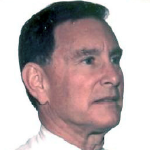 Lowell Gerson, PhD
Lowell Gerson, PhD
Dr. Gerson is a professor emeritus of family and community medicine at Northeast Ohio Medical University in Rootstown. He received his doctorate from Case Western Reserve University. His overall academic focus is effective and efficient delivery of medical services and prevention of injury and disease. He has a particular interest in emergency care of older patients, and he is regarded as one of the founders of that specialty. The Academy of Geriatric Emergency Medicine recognized this when it created the Gerson-Sanders Award for outstanding achievement in geriatric emergency medicine.
In 1981, Dr. Gerson identified the disproportionate use of emergency medical services by older patients. His observation, one of the first to identify older persons as a special population, was cited in early research on the topic. In 1992, he published the results of his study investigating the value of case finding by paramedics for problems in older patients. Today, emergency medical services identify older patients with conditions that put them at risk for additional problems.
Dr. Gerson was a member of the original Society for Academic Emergency Medicine (SAEM) Geriatric Task Force. Later, he chaired that task force. From 2001 to 2014, he was the SAEM representative to the American Geriatrics Society Council for the Section on Surgical and Related Medical Specialties. In that capacity, he advocated for increased attention to geriatric issues, mentored early-career faculty, and encouraged greater participation in the Jahnigen and GEMSSTAR career development awards.
Dr. Gerson’s past appointments include senior scientist in the department of emergency medicine, Summa Health System—Akron City Hospital; associate professor, faculty of medicine, Memorial University of Newfoundland; associate professor, McMaster University; visiting fellow, South Australia Health Commission; and visiting senior scientist at the Centers for Disease Control and Prevention.
In 1999, he was appointed associate editor of Academic Emergency Medicine. He subsequently was promoted to senior associate editor, a position he held until 2019. He is a member of the MEDICC Review Editorial Board.
He has researched and written more than 250 published articles. Since retiring to a golf community in southwest Florida, Dr. Gerson has remained active in efforts to increase wellness and reduce illness and injury in his community, and he advocates for improved emergency care for older persons. Dr. Gerson and his wife of 55 years, Francine, an acclaimed fused-glass artist, have two children and two granddaughters.
Honorary Membership Award
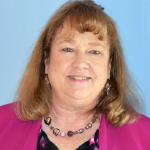 Laura Gore
Laura Gore
Ms. Gore served as the public relations director for ACEP for more than 20 years.
During that time, she significantly raised ACEP’s public profile among its external audiences, such as health policy media in Washington, DC. An expert in developing news hooks, Ms. Gore led her team to conduct two to three major media campaigns every year, engaging the use of opinion polls, social media, and advertising. As a result, ACEP’s media coverage on strategic issues doubled and tripled for many consecutive years.
She grew ACEP’s Spokespersons’ Network to more than 500 media-trained emergency physicians across the country and trained ACEP’s physician leaders to be effective on news programs such as Good Morning America and CNN, as well as to conduct desk-side briefings with The New York Times and USA Today.
Ms. Gore led ACEP’s evolution into social media, producing professional video for ACEP’s YouTube channel and growing the external Twitter feed to nearly 20,000 followers.
ACEP’s YouTube channel generated more than 600,000 views in one year, following the release of the organization’s first viral video. She also oversaw ACEP’s branding process and development of the organization’s tagline, “Advancing Emergency Care.” An expert in crisis communications, Ms. Gore was ever vigilant to protect the white hat image of emergency physicians and ACEP.
Ms. Gore wrote or edited all content for ACEP’s two external websites—newsroom.acep.org and EmergencyCareforYou.org. She developed messaging on policy issues, based on research and focus group testing.
Ms. Gore previously worked in the executive office of the president communicating articles about the president‘s national drug control strategy. She also served as a press aide to two governors of Florida, editor of a science journal, and editorial director for a social science research firm.
Council Meritorious Service Award
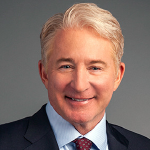 John H. Proctor, MD, FACEP
John H. Proctor, MD, FACEP
Dr. Proctor is clinical executive consultant for Sound Emergency Medicine. He is a diplomat of the American Board of Emergency Medicine, with sub-board certification in pediatric emergency medicine, and is a clinical assistant professor of emergency medicine for the University of Tennessee Health Science Center. He is a member of the American Medical Association Reimbursement Update Committee and the Joint Commission Ambulatory Accreditation Professional Technical Advisory Committee. Dr. Proctor has held numerous leadership and educational roles with prestigious health care organizations.
Disaster Medical Sciences Award
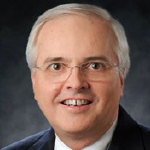 Richard C. Hunt, MD, FACEP
Richard C. Hunt, MD, FACEP
Dr. Hunt served as director for medical preparedness and response policy on the National Security Council staff for the White House from 2013 to 2015. At the White House, he led the development and launch of Stop the Bleed and played a critical role in the response to the Ebola crisis. He represented the National Security Council’s interests in the National Academies report “A National Trauma Care System: Integrating Military and Civilian Trauma Systems to Achieve Zero Preventable Deaths After Injury.”
Dr. Hunt currently serves as senior medical advisor for national healthcare preparedness programs in the Office of the Assistant Secretary for Preparedness and Response, U.S. Department of Health and Human Services, where he is developing a course on the medical response to overwhelming no-notice trauma events and supports the response to high-consequence infectious diseases. Dr. Hunt was distinguished consultant and director of the division of injury response at Centers for Disease Control and Prevention (CDC) Injury Center, where he led medical preparedness initiatives for terrorist bombings including the guidance “In a Moment’s Notice: Surge Capacity for Terrorist Bombings, and the Tale of Our Cities conferences.” He led CDC’s national guidelines for field triage of injured patients.
Prior to federal service, he was professor and chair of the department of emergency medicine at SUNY Upstate Medical University in Syracuse, New York. With ACEP, he served as chair of the Trauma Care and Injury Control Committee and was ACEP’s first liaison to the American College of Surgeons Committee on Trauma. He is a past President of the National Association of EMS Physicians and was vice chair of the Commission on Accreditation of Medical Transport Systems. Dr. Hunt is board-certified in emergency medicine, holds a master of science degree, and is an adjunct professor of emergency medicine at Emory University School of Medicine in Atlanta.
Pamela P. Bensen Trailblazer Award
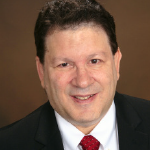 Andrew I. Bern, MD, FACEP
Andrew I. Bern, MD, FACEP
My life was forever changed in 1979 when I left my residency in New York to start the emergency medicine residency at the University of Louisville, Kentucky. Soon after my program began, I joined the Emergency Medicine Residents’ Association (EMRA). My election to the EMRA Board of Directors was life-changing because of the dynamic and visionary leaders I met who mentored me over the years. I had contact with the founders and leaders of the College who were there at the start of the organization when it was chartered in 1968.
One of those leaders was Pam Bensen, MD, MS, FACEP, the first woman to complete an EM residency program, who was active in the Council and ultimately became a national Board of Directors member. Her vision, passion, persistence, creativity, and mentorship helped shape who I am today. It has come full circle that I will be the first to receive the Pamela B. Benson Trailblazer Award.
Over my 41 years in the practice of emergency medicine, I have held one principle: “One person can make a difference.”
Within ACEP, my focus has been in four areas:
Membership: To help members achieve more within the organization, I established the concept of sections of membership. The Disaster Medicine Section was the first section established in 1988. Today, there are 38 sections representing member interests that are as broad as emergency medicine. The specialty has benefited from the work these sections have done, but it was not easy. The concept was first brought to the Board in 1983 and each subsequent year until it was adopted in 1988. More than half of today’s College membership participates in and belongs to a section.
Grants: I have been a long-time advocate of the grant process. Over the years, I worked to achieve Board support for hiring a dedicated individual to head up the College’s grant efforts. I also was involved in creating a grant program for sections. The College has brought in more than $10 million under the leadership of Cynthia Singh, Dean Wilkerson, and the professional ACEP staff.
Advocacy: I have been involved in the College’s advocacy program since the beginning, participating in the 911 network within my state and nationally. I am still active in these efforts and participate in both the Federal Government Affairs and the State Legislative Affairs committees.
Council: I learned of the important work the Council does from John Rupke, MD; John Wiegenstein, MD; Dr. Bensen; Ron Krome, MD, FACEP; Jack Page, MD, FACEP; and others. Our representative body helps distill important ideas that go to the Board of Directors for study and implementation. It also builds leadership for our College.
After all this time, I can definitely confirm “one person can make a difference in your life’s career in emergency medicine and for our future patients.”





No Responses to “Congratulations to the 2019 ACEP Leadership Award Winners”